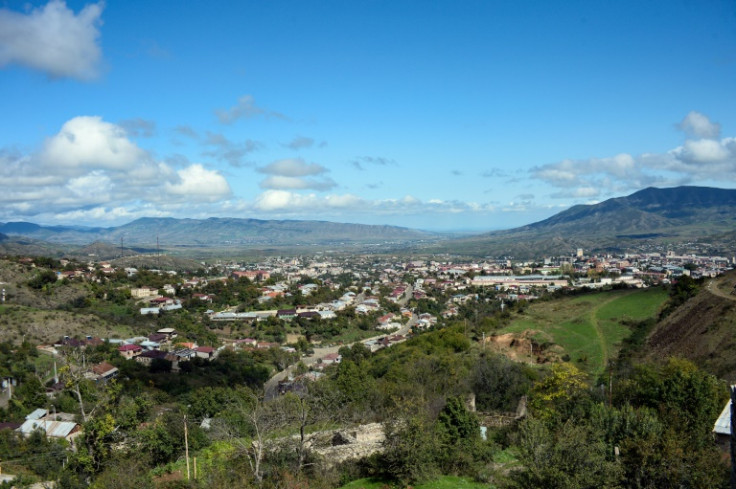
Foes Armenia and Azerbaijan crossed swords at the UN's top court Thursday, as Yerevan accused Baku of "ethnic cleansing" in Nagorno-Karabakh, sparking a furious response from the Azerbaijani side over the "unfounded" charges.
The clash at the International Court of Justice (ICJ) came only weeks after Azerbaijan's lightning offensive to take control of the disputed area of Nagorno-Karabakh for the first time in three decades.
The one-day operation sparked a mass exodus of ethnic Armenians, with the vast majority of the estimated 120,000 who had been living in the territory fleeing into Armenia.
"Despite comprising for millennia the great majority of the population of Nagorno-Karabakh, almost no ethnic Armenians remain in Nagorno-Karabakh today," said Armenia's ICJ representative Yeghishe Kirakosyan.
"If this is not ethnic cleansing, I do not know what is."
Responding for Azerbaijan, representative Elnur Mammadov said Armenia had repeated its accusations of ethnic cleansing so often that the claims "have taken on a life of their own."
Dismissing the accusations as "unfounded" and "completely without merit", Mammadov said they "do not reflect the reality of what has actually been going on in Karabakh."
"Azerbaijan has not engaged and will not engage in ethnic cleansing or any form of attack on the civilian population of Karabakh," he said.
The hearings concern Armenia's request to the ICJ to order Azerbaijan to "withdraw all military and law-enforcement personnel from all civilian establishments in Nagorno-Karabakh."
It has also called on the court to ensure Azerbaijan "refrain from taking any actions... having the effect of displacing the remaining ethnic Armenians... or preventing the safe and expeditious return" of refugees.
The ICJ rules on disputes between states, but while its decisions are legally binding, it has no power to enforce them.
"There is still time to prevent the forced displacement of ethnic Armenians from becoming irreversible and to protect the very few ethnic Armenians who remain in Nagorno-Karabakh," said Kirakosyan.
"You can still make a meaningful difference on the ground today," he told the judges.
Azerbaijan retorted that it was actually encouraging ethnic Armenians to return and would afford them safe passage.
"Azerbaijan not only guarantees a right to return, it genuinely hopes that Armenian residents will return, once they see that life in Karabakh can be different from the distorted images painted by Armenia," said Mammadov.
Mammadov set out a series of commitments from Azerbaijan, including protecting the property of those who have left and ensuring the security of those remaining.
Baku pledged to allow the "safe and prompt" return of residents and the "safe and unimpeded departure" of anyone wanting to leave.
Thursday's hearings at the Peace Palace in The Hague are the latest in a long-running legal battle between the two rivals.
Each country has accused the other of breaching a UN treaty, the International Convention on the Elimination of All Forms of Racial Discrimination (ICERD).
The mountainous region of Nagorno-Karabakh was populated mainly by Armenians and became part of Azerbaijan under Soviet rule, in the years following the fall of the Russian Empire in 1917.
It unilaterally proclaimed its independence with the support of Armenia when the Soviet Union collapsed in 1991.
In the wake of the operation in September, Armenian lawmakers approved a key step in joining another international court based in The Hague -- the International Criminal Court (ICC).
This infuriated its traditional ally Russia because the ICC has issued an arrest warrant for Kremlin chief Vladimir Putin on allegations of abducting Ukrainian children during Moscow's war on Ukraine.
© 2025 Latin Times. All rights reserved. Do not reproduce without permission.




